The content of the article
Every woman sooner or later morally matures before becoming a mother. For some, this awareness comes long before pregnancy, and someone decides to become a good mother after seeing two stripes on the test. If the pregnancy is desired, any woman tries with all her might to make the baby develop well and without pathologies. But the outcome of events is not always rosy. Sometimes a pregnancy is terminated before it has really developed. And the reason for this is the ectopic location and attachment of the ovum. This is a rather dangerous condition requiring immediate hospitalization. If you do not take the necessary measures in time, everything can end tragically. In this article, you will learn what an ectopic pregnancy is, read about the causes and symptoms of this pathology, and also get acquainted with the main ways to solve this problem.
What is an ectopic pregnancy
In order to understand the principle of ectopic pregnancy, you need to know how the body works in normal mode. After intercourse, a huge amount of sperm through the vagina enters the body of a woman. Sperm cells travel a long way to the ovum and only one (the strongest and hardiest) is able to fertilize it. A fertilized egg is called a zygote - for 7 days it makes its way through the fallopian tubes to the uterus in order to finally catch on there and begin its development. Until the embryo is attached to the wall of the uterus, the mother’s lifestyle does not affect its development. And only after implantation does the fetus begin to receive blood, nutrition, and oxygen from the mother. So begins the development of a healthy pregnancy.
An ectopic pregnancy develops a little differently. If a woman’s reproductive system malfunctions, a fertilized egg simply cannot move through the fallopian tubes and gets stuck in other organs. Ectopic pregnancy is divided into cervical, ovarian, and abdominal, depending on the location of the fetal egg. But most often, the zygote gets stuck along the way to the uterus and attaches to the wall of the fallopian tube - this is the most common type of ectopic pregnancy.
Such a condition can be extremely dangerous, since the fetal egg grows and rapidly grows in size. This can cause the surrounding tissue to rupture and cause internal bleeding. An ectopic pregnancy is considered a serious indication for immediate medical attention, otherwise a woman may die from blood loss. But how to prevent this situation? How to recognize an ectopic pregnancy before rupture of the fallopian tubes?
Causes of ectopic pregnancy
Until now, doctors can not in all cases identify the cause of the development of an ectopic pregnancy. But there are several factors that increase the risk of developing pathology.
- Various inflammatory processes in the reproductive system of women can lead to narrowing of the fallopian tubes. Because of this, the passage of a fetal egg through them is difficult, it gets stuck, never reaching the uterine cavity.
- Pipe patency may be impaired after various surgical interventions.
- Sometimes a fetal egg cannot enter the uterine cavity because the fallopian tubes are too long, sinuous, or narrow. Unfortunately, such anatomical features can cause the development of an ectopic pregnancy.
- An ectopic pregnancy often occurs after in vitro fertilization.
- The patency of the tubes may be impaired due to various tumors and neoplasms in the area of the tubes.
- Normally, the ovum moves along the fallopian tubes due to the small villi that move it in the right direction. The movement of these villi is provided by hormones. If there is a hormonal failure in the body, then the progression of the fetal egg stops, it is fixed outside the uterine cavity.
- Some women try to drink contraceptives with a reduced amount of estrogen, based on a progestogen or progestin. In some cases, if a woman does not take such contraceptives as prescribed by a doctor, they can lead to an ectopic pregnancy.
- A contraceptive spiral can also cause an ectopic pregnancy. Normally, it mechanically closes the path from the fallopian tubes to the uterus, preventing the fetal egg from gaining a foothold in the uterine cavity. But no one is safe from the fact that the zygote will be located where it was allowed - right in the pipes. Failure in the work of contraceptive spirals can occur due to the long term of their use - this item must be changed in a timely manner.
If an ectopic pregnancy is suspected, an ultrasound scan of the pelvic organs is done, an analysis of hCG in dynamics (several days in a row), as well as an analysis of progesterone. With an ectopic pregnancy, the amount of progesterone is lower than with a healthy one, and the hCG rises very slowly or does it stand still.
Symptoms of an ectopic pregnancy
An ectopic pregnancy proceeds with many obvious symptoms, but often they are mistaken for normal toxicosis. In the early stages, you need to carefully monitor your feelings and, if necessary, contact a antenatal clinic as soon as possible.
- Normally, during pregnancy, the lower abdomen should not pull or hurt. Painful sensations in the early stages may indicate a threat of miscarriage or ectopic attachment of the fetal egg.
- If pain is felt on one side, then most likely the fallopian tube — the one in which the fetal egg is attached — makes itself felt. That is why the pain is localized on the right or left. But if the embryo is attached in the abdominal part, the pain may be in the middle. Often the pain in an ectopic pregnancy gives to the lower back and rectum.
- Often the pain of an ectopic pregnancy worsens during movement, walking, getting out of bed, etc.
- Pain, as a rule, intensifies over time, that is, as the embryo grows and grows in size. If the fetus has fixed in the widest part of the fallopian tube, the pain begins to bother at 7 obstetric week, if in the narrow part - already at 4-5 weeks. As a rule, it is at this time that pregnancy is detected. If the ovum is fixed in the ovary, the pain develops even earlier - around the fourth week.
- Spotting is another important symptom. Often it is he who makes women go for an examination. If there is a lot of blood, most likely, the fetal egg has fixed in the cervix. The fact is that in this area there are a lot of blood vessels and bleeding can be extremely dangerous - a woman can die from blood loss. Sometimes, to save the patient's life, she has to remove the uterus completely. Of course, this is an undesirable measure, however, choosing between a woman’s life and her ability to have children in the future, doctors are forced to choose the first.
- An hCG test can also be used to detect an ectopic pregnancy. If a woman's pregnancy proceeds normally, the level of hCG increases rapidly. That is, today the test showed a weak second strip, and tomorrow the strip is already significant. With an ectopic pregnancy, the hCG indicator rises uncertainly, slowly. It happens that the test does not respond, because hCG is too small.Then you need to donate blood for analysis, and several times to check the dynamics.
- With an ectopic pregnancy, nausea and vomiting are especially pronounced. Do not rely on toxicosis - you need to be checked as soon as possible.
- If the fetal egg is located in the abdominal cavity, a woman may experience pain when urinating and defecating. This suggests that the zygote attached itself near the bladder and intestines.
- The general condition of the woman is also changing - she feels apathy, drowsiness, discomfort, malaise. The same feelings can occur during normal pregnancy, but with a uterine, they are unusually pronounced.
- Lean menstrual flow can also be a symptom of an ectopic pregnancy. In fact, this is internal bleeding, which is often mistaken for menstruation.
- Along with the specific symptoms of an ectopic pregnancy, a woman has the usual symptoms that are also characteristic of a healthy pregnancy - an increase, soreness and fullness of the breast, a change in mood, a feeling of general malaise.
If an ectopic pregnancy is brought to such a state that the fetal egg breaks adjacent organs, a woman may feel acute unbearable pain in the lower abdomen. After prolonged blood loss, fainting is possible. With such symptoms, you should consult a doctor as soon as possible. An ectopic pregnancy can be diagnosed using ultrasound. It can be either traditional or vaginal. A fetal egg is difficult to identify in the ovaries and abdominal cavity, so if the doctor does not find a zygote in the uterus by ultrasound, the diagnosis is an ectopic pregnancy. But what can cause such a pathology?
Ectopic pregnancy - what to do?
The sooner a woman seeks medical help, the more favorable the prognosis of her treatment will be. With timely treatment, a laparoscopic operation is performed. Through a tiny hole, the doctor passes a small chamber into the cavity of the tubes and finds a fetal egg, which is immediately removed. For serious symptoms, when the fetal egg breaks the fallopian tube, everything is removed along with the tube. Despite this operation, a woman may well have children, because she still has a second healthy tube.
After the operation, it is necessary to undergo an examination and understand what could contribute to the development of an ectopic pregnancy. If tumors and neoplasms provoked it, then the question of surgical intervention is resolved, with hormonal failure, appropriate treatment is carried out. After an ectopic pregnancy, you need to protect yourself for about six months. It is difficult to answer the question of the possibility of repeated ectopic pregnancy - it all depends on the anatomical features of each individual female body. However, in order to reduce the risk of developing an ectopic pregnancy in the future, you need to be thoroughly examined at the planning stage of the child. This will allow you to heal in advance and eliminate the risk of developing many pathologies in the body of the mother and the unborn baby.
An ectopic pregnancy is a serious diagnosis. Even 3-4 decades ago, women were admitted to the hospital with this diagnosis only at the late stage of the disease, when the pipes were torn and severe bleeding was revealed.Then, in order to save a woman, all reproductive organs were completely removed, she could never again become a mother. Fortunately, the current conditions of diagnosis and surgical intervention can correct the situation quickly, and most importantly, without consequences. See your doctor in time to maintain your female health. It has been proven - more than half of women who have had an ectopic pregnancy subsequently become mothers again. This is a great result!
Video: how to determine an ectopic pregnancy



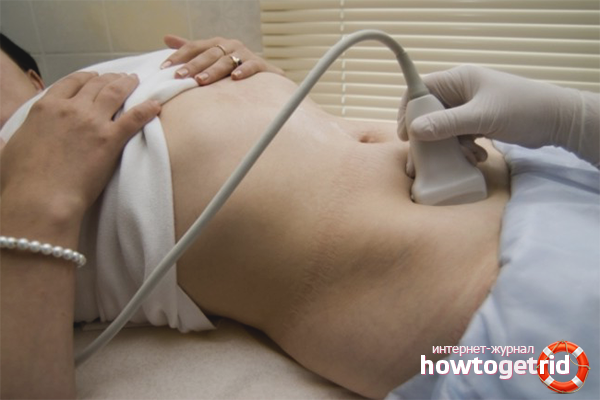


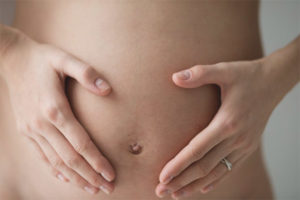

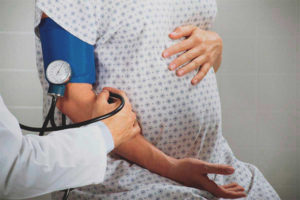
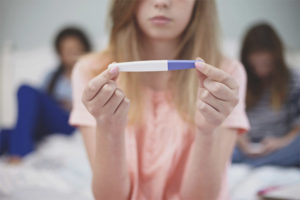
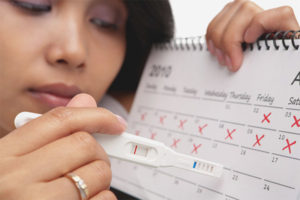
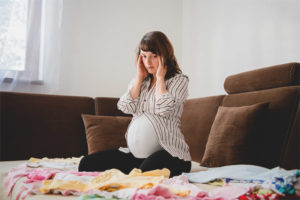
Submit